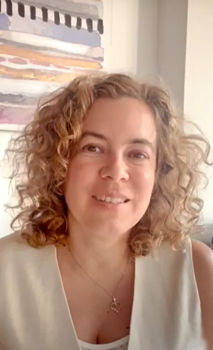Egg freezing risks and complications
Any medical treatment that matters for your future deserves an honest conversation about risks. Egg freezing is generally very safe, but it is not zero risk.
Why it matters to talk about risks in a calm way
When you search online, you will find everything from very dramatic stories to very optimistic promises. Real life is usually in the middle. Egg freezing involves hormonal stimulation, an egg retrieval procedure and anesthesia. Each part has possible side effects. The good news is that, with careful monitoring and experienced doctors, serious complications are rare.
Key points
- Most side effects are mild and temporary, like bloating, mood changes or mild pelvic discomfort.
- More serious complications such as severe ovarian hyperstimulation or infection are rare, but they are taken very seriously.
- A good medical team will not only tell you the benefits. They will also explain risks and how they plan to reduce them in your case.
If you are still deciding whether egg freezing fits your plans and your budget, you can also look at our detailed egg freezing cost in Mexico page and the general egg freezing overview to see the full picture.
Common and expected side effects
Most women who go through egg freezing describe the process as intense, but manageable. The hormones are doing a lot of work in a short amount of time. Your ovaries are growing several follicles at once instead of just one. That can be felt in your body and your mood.
During ovarian stimulation
- Bloating and abdominal heaviness, especially toward the end of stimulation.
- Mild discomfort or bruising at injection sites.
- Feeling more emotional or irritable than usual.
- Temporary headaches or fatigue in some patients.
If you want to see how this phase works in more detail, our page on ovarian stimulation for egg freezing explains the daily injections, monitoring and dose adjustments.
After egg retrieval
- Pelvic discomfort similar to strong period cramps.
- Light vaginal spotting in some cases.
- Tiredness for the rest of the day due to sedation.
Most of these symptoms improve within a few days. The day of the procedure, rest, hydration and simple plans are your best friends. You can read more about what happens that day on our egg retrieval page.
Less common but important medical risks
Serious complications are not the norm, but you should know which ones exist. The whole point of careful monitoring is to catch early warning signs and act before things become serious.
Ovarian hyperstimulation syndrome (OHSS)
- OHSS happens when the ovaries react too strongly to the stimulation medications.
- Mild forms include increased bloating and discomfort.
- More severe cases can include strong pain, nausea, difficulty breathing or rapid abdominal swelling and require urgent attention.
To reduce the risk of OHSS, your doctor adjusts medication doses based on how your ovaries respond, and may choose different trigger medications or timing if your response is very strong. This is part of the close stimulation and monitoring process.
Bleeding, infection or injury after retrieval
- The egg retrieval is done with a needle through the vaginal wall, guided by ultrasound.
- A small amount of spotting is common. Significant bleeding is rare.
- Pelvic infection is possible but uncommon. Sterile technique and antibiotics when indicated help reduce this risk.
Ovarian torsion
- The ovaries are slightly larger and heavier during stimulation, which can increase the risk of torsion.
- Torsion causes sudden, strong pelvic pain and is a medical emergency.
- To reduce this risk, we usually recommend avoiding very intense physical activity during stimulation and shortly after retrieval.
Anesthesia, sedation and overall safety during egg retrieval
Egg retrieval is usually performed under sedation. You are asleep and comfortable, and you do not feel the procedure. As with any anesthesia, there are small risks such as reactions to the medications or breathing issues, but these are rare in healthy patients and are handled by an anesthesiology team that is present throughout.
How we prepare you for anesthesia
- You will be asked about your medical history and previous reactions to anesthesia.
- You will be instructed to fast for a certain number of hours before the procedure.
- An anesthesiologist reviews everything again on the day of retrieval and stays with you until you wake up.
If you want to know more about the practical side of that day, you can read our dedicated page on the egg retrieval procedure and what to expect hour by hour.
Long term questions and what current evidence suggests
Many women also ask about long term safety. Does egg freezing affect my future fertility. Does it increase cancer risk. Current evidence does not show that a properly managed egg freezing cycle increases long term health risks. What matters most is doing it in a controlled, individualized way rather than rushing through high doses of medication.
Emotional side of risk
- It is normal to feel nervous before starting and to worry about how your body will react.
- Having clear information usually lowers anxiety and helps you feel more in control.
- Talking openly with the medical team about your fears is part of good care, not an inconvenience.
During consultations, Dr. Alejandro Castillo Peláez takes time to explain both benefits and risks in a direct but calm way. The goal is that you do not move forward because you were convinced by marketing, but because you feel informed and comfortable with the plan.
If you would like to balance this page with something more hopeful, you can read about egg freezing success rates and how age, egg count and lab quality come together to give you realistic chances later on.
🙌 You're not alone — we’re here to guide you
Whether you're comparing clinics, navigating your options, or trying to understand what the next step should be, having clear medical guidance truly makes a difference.
Every patient who reaches out speaks directly with Dr. Alejandro Castillo Peláez or his international coordinator, Michaël — so your questions are answered by the people who are actually involved in your care.
Our role is simple: to help you access safe, transparent and personalized fertility treatment in Mexico, without overwhelm or guesswork.
Meet Dr. Alejandro Castillo Peláez
Dr. Castillo Peláez would like to connect with you for a consultation.
👇🏼 Book a consultation
Get answers to all your questionsabout fertility treatments in Mexico.
Thank you. We'll get in touch with you soon.

and reproductive biologist
Patient stories and testimonials
Read the great reviews from patients who have been fortunate enough to have Dr. Alejandro Castillo as their fertility specialist.









